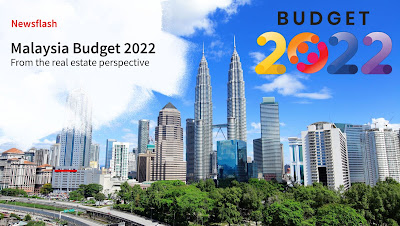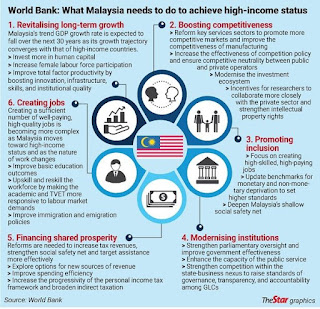Source: Human Resources Ministry and Health Ministry Source: Human Resources Ministry and Health Ministry
> Increase outside air ventilation. > Increase air filtration.
> Adjust or reconfigure air flows.
2. Administrative Controls
> Reduce crowd or occupancy. > Limit the use of small spaces that are shared.
3. Reconfiguration Of Building Spaces And Furnishings
> Use partitions to reduce risks of transmission and minimise direct
Having good ventilation at business premises can help reduce contaminants in the air and curb the spread of Covid-19, say health experts.
Universiti Malaya public health medicine specialist Prof Dr Victor Hoe said good ventilation would not only prevent infectious diseases and reduce sickness, but also improve morale and productivity.
Dr Hoe said people are usually enclosed inside buildings without fresh air.
“They are recirculating the air and the reason is to conserve energy as the cost of cooling fresh air is higher than recirculating cool air,” he said when contacted.
He added that businesses should not hastily decide to change their ventilation system without consulting with experts.
“While many people have recommended opening windows to allow fresh air into the building, this will alter the air flow. The air from the outside is usually warmer than the air in the building.
“Mixing cool and warmer air will generate moisture and this will increase the chances of fungal formation in the ventilation system.
“Fungal issues are as bad if not worse than the Covid-19 pandemic. The other issue with moisture is that it will affect electronic systems,” he said.
As such, to ensure good ventilation, Dr Hoe said the air exchange per hour (ACH) should be increased.
“In a normal office that uses a centralised air conditioning system, the ACH is usually between four and six air changes in an hour.
“At this rate, the time required for removal of 99% of the contaminants in the room is between 69 and 46 minutes.
“To improve the ACH, we can install Hepa (high-efficiency particulate absorbing) filters which can increase the ACH to 10, reducing the time it takes to remove contaminants from 46 to 28 minutes,” he said.
Dr Hoe reminded businesses that ventilation improvements would only reduce Covid-19 risk but could not eliminate it entirely.
Medical Practitioners Coalition Association of Malaysia president Dr Raj Kumar Maharajah said having good ventilation is not just good for business entities but also for homes.
He said a good ventilation system could help prevent virus particles from accumulating in the air.
“Good ventilation, along with other preventive actions, like staying 2m apart and wearing masks can help prevent you from getting and spreading Covid-19,” he added.
To have better ventilation, Dr Raj suggested that there should be, among others, an increase in ventilation and enhanced air exchanges, as well as exhaust fans.
For those in enclosed spaces, he recommended they consider having portable air cleaners for localised air cleaning.
American Society of Heating, Refrigerating and Air-Conditioning Engineers (Ashrae) Malaysia chapter president Ng Wen Bin said ensuring proper ventilation with outside air could help reduce the concentration of airborne contaminants, including viruses, indoors.
“Proper ventilation also reduces surface contamination by removing some virus particles before they can fall out of the air and land on surfaces. However, by itself, increasing ventilation is not enough to protect people from Covid-19.
“But when used along with other best practices recommended by Ashrae and others, increasing ventilation can be part of a plan to protect people indoors,” he said.
As most schools, offices, and commercial buildings have air conditioning and mechanical ventilation (ACMV) systems with filters, Ng said increasing ventilation and filtration was usually appropriate.
But due to the complexity and diversity of building types, sizes, construction styles, ACMV system components, and other features, he said a professional should interpret Ashrae guidelines for their specific building and circumstances.
“Increasing ventilation may not always be possible or practical. In such cases, the effective rate of ventilation per person can be increased by limiting the number of people present in the building in general, or in specific rooms,” he said.
Virus spreads easier in low humidity environment
GEORGE TOWN: Any virus will spread more easily in an air-conditioned environment, where humidity will be much lower, says an expert.
USM virology scientist Dr Muhammad Amir Yunus said typically, the humidity in air-conditioned spaces would be low and this contributed to the transmission of viruses in droplets.
“Relative humidity will affect the transmission of airborne virus on top of poor ventilation.
“High humidity can partially inhibit the travel of viruses in droplets and aerosols,” he said.
Dr Muhammad Amir said he was not aware of any hard and fast rules on the value of ventilation to prevent the transmission of viruses.
He, however, pointed out that there was direct correlation between poor ventilation and carbon dioxide levels.
“Higher carbon dioxide levels can be used as an indicator for poor ventilation or air circulation indoors,” he said.
He said the recent announcement on the tax-exempted expenses for renovations and refurbishments of premises would definitely be beneficial.
“The system is not cheap. It involves many components.
“The tax cut will encourage businesses to pay attention to this aspect, which very directly relates to public safety,” he said.
Incentives to improve premises
Business groups want a clearer picture on tax deduction for renovations
PETALING JAYA: Business groups are seeking a clearer picture on the tax incentive meant for them to renovate and refurbish their premises, which they say is helpful to ensure that their ventilation can be upgraded.
Malaysian Retailers Association vice-president Datuk Ameer Ali Mydin hoped the criteria to enjoy the tax benefit would not be so strict.
“It should be very simple so that any improvement, however small, would benefit the consumers.
“Most of the larger shopping centres comply with the ventilation requirements as they are required to do so, but this incentive will be useful for smaller retailers or older hypermarkets which may not have complied with the new ventilation requirements,” he said when contacted yesterday.
On Nov 5, Health Minister Khairy Jamaluddin pointed out that under Budget 2022, the government has extended the tax incentive for the renovation and refurbishment of business premises.
He said that this would allow more businesses to invest in good ventilation to curb the spread of Covid-19.
Under Budget 2022, the government extended the tax deduction of up to RM300,000 on the cost for renovating and refurbishing business premises until Dec 31, 2022, in order to comply with requirements such as ventilation and customer seating.
However, Ameer pointed out that the incentive should not just include ventilation but also general refurbishments as it was equally important.
“This will be good for the older malls to be able to spend some money to become more competitive. This can perhaps be used to make the shopping centre not just be refurbished in a normal way but with the added technology to give customers a better experience,” he said.
Malaysian Muslim Restaurant Owners Association (Presma) president Datuk Jawahar Ali Taib Khan concurred that the tax incentive would be helpful for restaurant owners.
But he said they remained unclear on the criteria to get the tax incentive.
“We are not sure, so we hope the government will give a clear explanation on how to plan for this ventilation,” he said.
Jawahar suggested that the government give a special grant to outlet owners to purchase ventilation equipment that is suitable for them.
“The local authorities should also make the application easier for outlet owners to do renovation by not asking unnecessary documents and charging us exorbitantly,” he said.
He said outlet owners should also not be charged a fee for placing chairs and tables at the five-footway in front of restaurants, especially corner lots, which does not pose a hindrance to the public as this would help customers sit in open spaces.
“Enforcement officers should not take this as an opportunity to summon outlet owners,” he said.
Malaysian Association of Hotels chief executive officer Yap Lip Seng said the industry welcomed any form of tax deduction, incentives or allowances.
However, Yap said they hoped that this tax incentive could be applied on top of any other existing incentives to ease the burden on the upgrading expenses, particularly in ensuring public safety and hygiene.
SME president Ding Hong Sing said any incentive from the government should be translated into action, noting that their focus right now was on ensuring the survival of businesses.
PUBLIC AREA SETTING
1. Engineering Controls
> Increase outside air ventilation. > Increase air filtration.
> Adjust or reconfigure air flows.
2. Administrative Controls
> Reduce crowd or occupancy. > Limit the use of small spaces that are shared.
3. Reconfiguration Of Building Spaces And Furnishings
> Use partitions to reduce risks of transmission and minimise direct
Incentives to improve premises
PETALING JAYA: Business groups are looking for a clearer picture of the tax incentive for them to renovate and renovate their premises, which they say is helpful in ensuring that their ventilation can be upgraded.
Vice President of the Malaysian Retailers Association Datuk Ameer Ali Mydin hoped that the criteria for enjoying the tax benefit would not be so strict. “It should be very simple so that all improvements, no matter how small, would benefit consumers.
“Most of the larger malls meet the ventilation requirements because they are required to do so, but this incentive will be useful for smaller retailers or older supermarkets that may not have met the new ventilation requirements,” he said when contacted yesterday.
On November 5, Health Minister Khairy Jamaluddin pointed out that under budget 2022, the government has extended the tax incentive for renovation and refurbishment of business premises.
He said this would enable more companies to invest in good ventilation to slow down the spread of Covid-19.
According to Budget 2022, the government extended the tax deduction of up to RM 300,000 on the cost of renovation and refurbishment of business premises until 31 December 2022, in order to meet requirements such as ventilation and customer seats.
However, Ameer pointed out that the incentive should not only include ventilation but also general renovations as it was equally important.
“This will be good for the older malls to be able to spend some money to become more competitive. This can perhaps be used to get the shopping center not only to be renovated in a normal way but with the extra technology to give customers a better experience, ”he said.
Malaysian Muslim Restaurant Owners Association (Presma) President Datuk Jawahar Ali Taib Khan agreed that the tax incentive would be helpful to restaurant owners.
But he said they remained unclear about the criteria for obtaining the tax incentive.
“We are not sure, so we hope the government will provide a clear explanation of how to plan for this ventilation,” he said.
Jawahar suggested that the government make a special contribution to outlet owners to buy ventilation equipment that is suitable for them.
“Local authorities should also make the application easier for store owners to do renovations by not requesting unnecessary documents and charging us unreasonably,” he said.
He also said that shop owners should not be charged a fee for placing chairs and tables on the five-foot road in front of restaurants, especially corner areas, which does not constitute an obstacle for the public as this would help customers sit in open spaces.
“Authorities should not take this as an opportunity to call out store owners,” he said.
Malaysian Association of Hotels CEO Yap Lip Seng said the industry welcomed all forms of tax deductions, incentives or compensation.
However, Yap said they hoped this tax incentive could be applied on top of all other existing incentives to ease the burden of upgrading costs, in particular to ensure public safety and hygiene.
SME President Ding Hong Sing said all government incentives should be put into action, noting that their focus right now was on ensuring corporate survival.
Related posts:
Open that window! Because fresh air can help lessen the spread of a virus and prevent infections
Fresh air can help stop infection
We need more emphasis on the need for good ventilation to avoid transmitting Covid-19.
Air-conds not so cool after all
It’s not cool to waste electricity
Time to Change way we use appliances



















